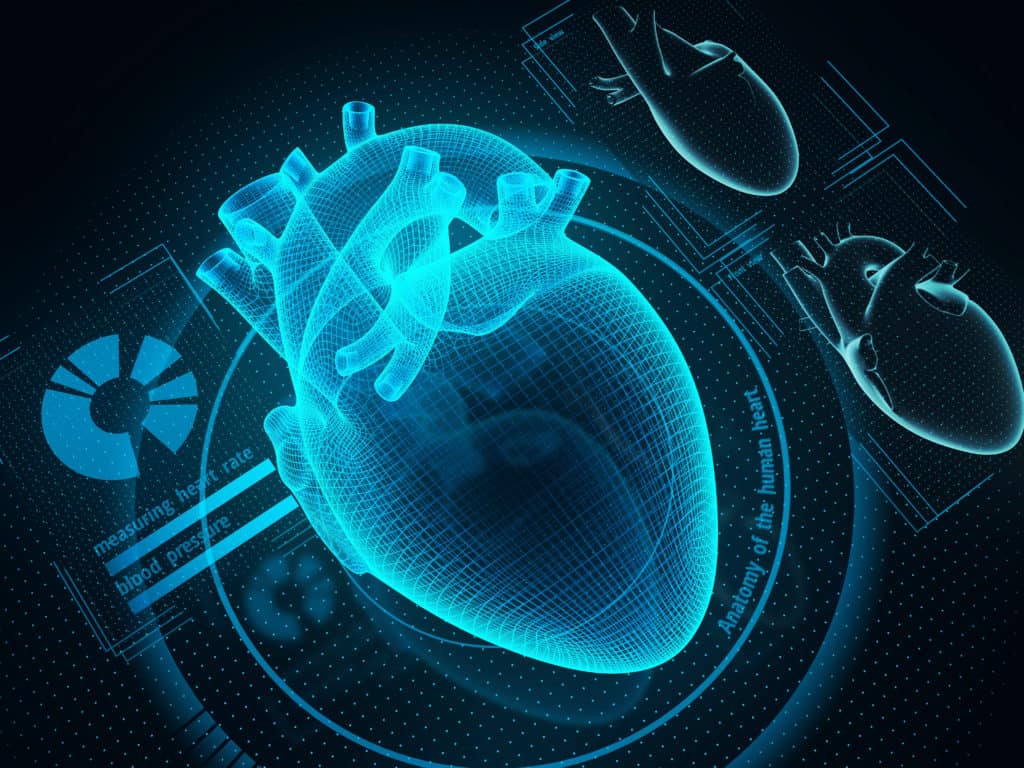What is a heart scan?
A heart scan, sometimes referred to as a coronary calcium scan, is a test that uses specialised X-ray – usually computerised tomography (CT scan) or multidetector row CT (MDCT) scans – to produce images of the heart. The results from a heart scan are used by your doctor to identify the need for treatment that may help to reduce the chance of a heart attack, or other heart health issues.
It is understood that people over the age of 65 are more likely to have a heart attack, and so regardless of how fit and healthy somebody feels, it can be a good idea to have a heart scan in order to track any changes to the heart or early signs of heart disease.
But what exactly are heart scans used to detect? In this article, we examine what your doctor is looking for when conducting a heart scan.
What can a heart scan detect?
In general, a heart scan will be performed to gain a better understanding of your risk of heart disease, and which treatment you may require. A number of different medical tests can be used to assess your heart condition and identify the best way to treat it.
CT Heart Scan – The MDCT or heart CT scan can create images of plaque deposits situated in your blood vessels, allowing plaque levels to be assessed. These plaque deposits build up over time, starting to form before any symptoms of disease present themselves. When plaque deposits grow significantly, the problem is that they can cause the flow of oxygen-rich blood to your heart muscles to be restricted.
Blood tests – When your heart muscle has been damaged, as in a heart attack, your body releases substances in your blood. Blood tests can measure the substances and show if, and how much of, your heart muscle has been damaged. Blood tests are also done to measure the level of other substances in your blood, such as blood lipids (e.g. cholesterol and triglycerides), vitamins and minerals.
Electrocardiogram (ECG) – An ECG reads your heart’s electrical impulses. It shows how well your heart is beating and to check its rhythm. Small sticky dots and wire leads are put on your chest and arms. The leads are attached to an ECG machine which records the electrical impulses and prints them out on paper.
Exercise stress test – A stress test, sometimes called a ‘treadmill’ or ‘exercise’ test, is a type of ECG that is done while you are exercising. It helps your doctor to find out how well your heart works when you are physically active.
Echocardiogram (ultrasound) – An echocardiogram is a common test. It gives a picture of your heart using ultrasound, a type of sonar. It uses a probe either on your chest or down your oesophagus (throat). It helps your doctor check if there are any problems with your heart’s valves and chambers and see how strongly your heart pumps blood.
Coronary angiogram – A coronary angiogram, sometimes called ‘cardiac catheterisation’, may be done after a heart attack or angina. A catheter (a small tube) is put into an artery in your groin, arm or wrist. The catheter is moved up inside the artery until it reaches your heart. A special dye is injected into your coronary arteries and an X-ray is taken. The X-ray shows your doctor where and how much your coronary arteries are clogged or blocked. It also shows how well your heart is pumping.
CT coronary angiogram – The advent of modern and advanced CT scanners has meant it is possible to ‘see’ inside the heart arteries in incredible detail with a simple and rapid CT scan. The CT coronary angiogram is increasingly used in advanced diagnostic units as a non-invasive alternative to the traditional invasive coronary angiogram. With an incredible resolution of just 0.3 mm it can determine the earliest signs of atherosclerosis and enable preventive measures to be put in place to prevent the furring up progressing or causing a heart attack.
Magnetic resonance imaging (MRI) – An MRI uses very strong magnets and radio waves to create detailed images of your heart on a computer. It can take still or moving pictures of your heart. Sometimes a special dye is used to make parts of the heart easier to see. This test shows your doctor the structure of your heart and how well it is working. It is not very good however in seeing the coronary arteries for which the CT coronary angiogram is far superior.
Even if there is no apparent heart disease risk or a low to moderate risk, a heart scan can help to guide treatment options such as lifestyle changes.
How to keep a healthy heart
So what can you do to keep your heart healthy? The fact is, there are many ways to help prevent heart disease, and here we will outline some of them.
Get enough sleep – Do everything you can to get enough sleep – that is six to nine hours a day according to the NHS. Sleep is an important part of maintaining heart health, and it is understood that people who don’t get enough sleep are at a higher risk of cardiovascular disease. For this reason, prioritising sleep should be one of the first boxes ticked in a daily routine to keep your heart healthy.
Stop smoking – If you do smoke, you should try to stop as soon as possible. Smoking is known as one of the biggest controllable risk factors for heart disease, and stopping can help to protect your heart, and your overall health.
Limit alcohol – Try to drink alcohol in moderation – both men and women are advised to keep their drinking to a maximum of 14 units a week.
Diet – A diet considered to be ‘heart healthy’ should be low in saturated fat and sugary food or beverages. Make your diet rich with fruit, vegetables and whole grains, and ensure that you are getting your fair share of healthy fats, from foods such as oily fish and olive oil.
Exercise has a major role to play in keeping your heart healthy. Exercising regularly can help to prevent heart disease, and it is recommended that adults exercise for at least 150 minutes per week.
Whether you like to play sports, workout at the gym, cycle, dance or walk – how you get your exercise is entirely up to you. Exercising naturally leads us to our final piece of advice; stay at the healthiest weight possible, because people who are overweight or obese are known to be at an increased risk of heart disease.
Those are just some of the things you can do to help keep your heart healthy. If you want to book an all encompassing healthy heart package at Echelon Health, and benefit from a world-leading health assessment using the most advanced scanning technologies, please visit our health assessment package page. Alternatively, call us on +44 (0)20 7580 7688 or email [email protected] to find out more.



